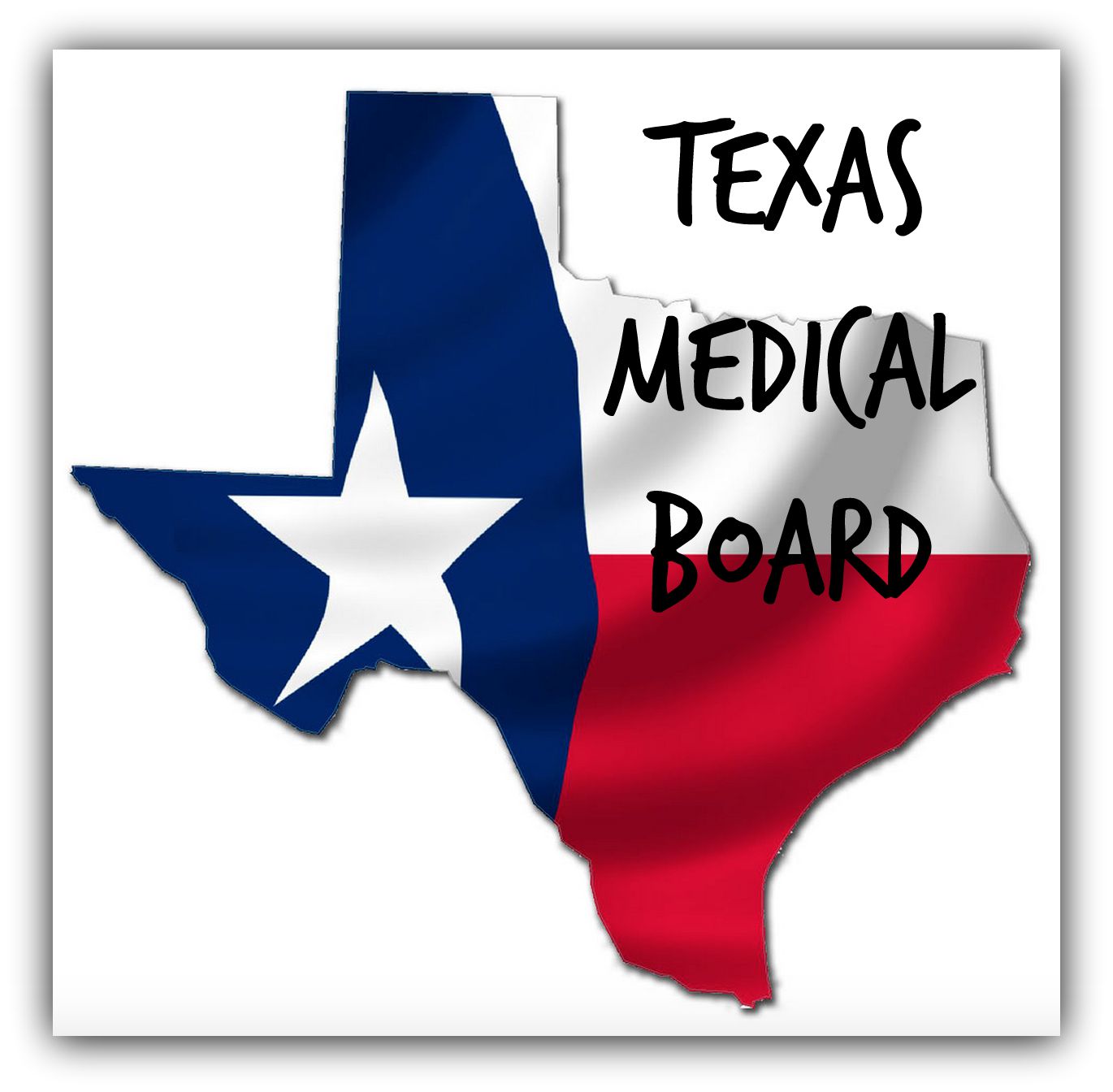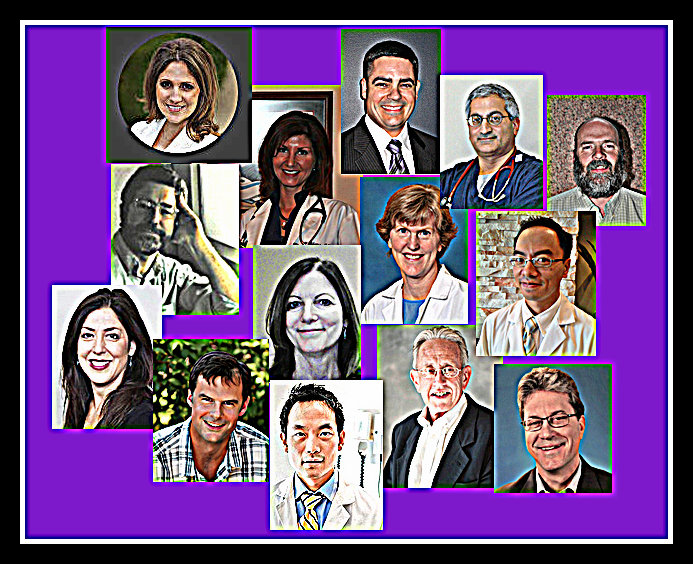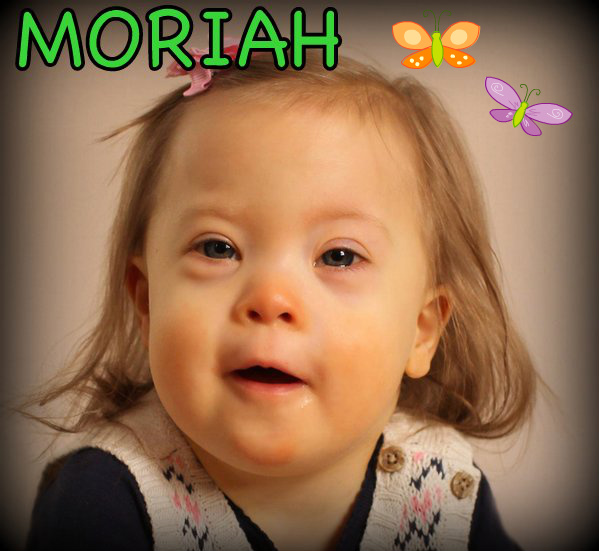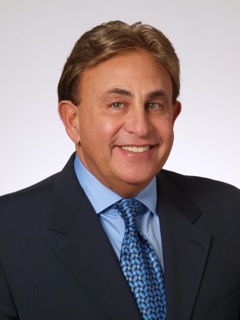15 Things which Thyroid Patients should teach their Doctors
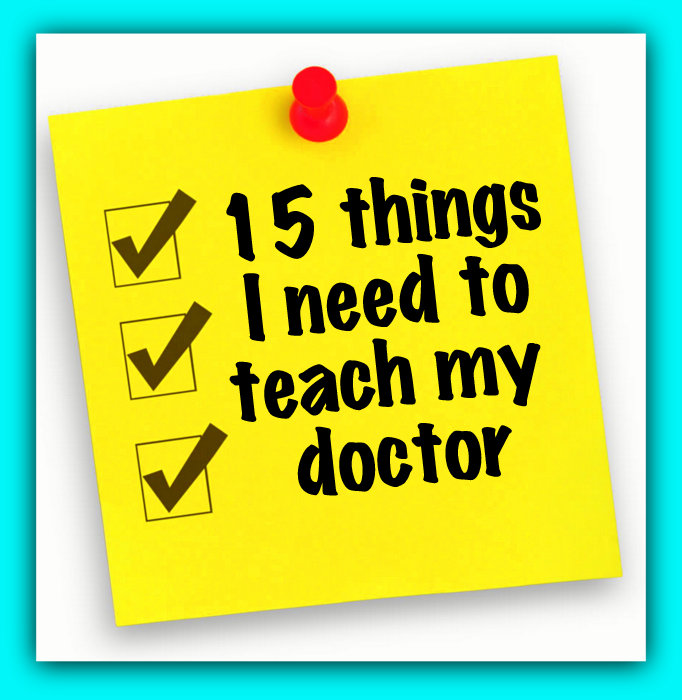 Many thyroid patients will tell you they have, or have had, doctors they love! I, Janie, have had many of them.
Many thyroid patients will tell you they have, or have had, doctors they love! I, Janie, have had many of them.
But it doesn’t take away from the fact that those in a medical profession have been sorely lacking for decades about correct knowledge on how to diagnose and treat hypothyroidism or Hashimotos, besides have inappropriate familiarity about all the issues related to being hypothyroid. Even their knowledge on how to correctly read labwork has been lazy.
Because of that poverty of correct knowledge, patients were forced to take the bull by the horns and figure things out for themselves! Stop the Thyroid Madness, the flagship of “patient experiences and wisdom”, represents all that wisdom!
Here are 15 things that any thyroid patient not only has to learn, but needs to teach any medical practitioner the best way they know how:
1) My fatigue and weight gain is not simply because I need to exercise more and eat less.
Granted, we know that exercise and how we eat is important! But being undiagnosed hypothyroid, or poorly treated due to Synthroid or any other T4-only medication, or being held to the TSH, keeps many of us with a low metabolism. The latter results in very easy weight gain, or the failure to do the kind of exercise which would help us!
2) Depression is strongly related to continued hypothyroidism!
We know there can be a variety of reasons for depression, but for most thyroid patients, our depression is a sure sign that we are either undiagnosed due to the lousy TSH lab test, or undertreated due to being on only one of five thyroid hormones like T4-only, or being held hostage to the TSH, a pituitary hormone.
3) The TSH lab test has been a failure for too many years. Â
Yes, though a seriously low TSH can detect if we have hypopituitary, for most of us, we’ve had a “normal” TSH yet obvious hypothyroid symptoms. Additionally, when we are optimally treated on Natural Desiccated Thyroid, T4/T3 or T3-only, our TSH lab test is always below range without one hint of bone loss or heart problems. We want to go by the free T3 and free T4, plus symptom removal and a good heartrate and blood pressure instead. //www.stopthethyroidmadness.com/tsh-why-its-useless
4) To figure out if IÂ have Hashimotos, Â BOTH antibodies labs need to be tested, not just one.Â
To detect if we have the autoimmune version of thyroid problems, patients saw right away that one antibody could be high, but the other one not. Â So we need both the anti-peroxidase AND the anti-thyroglobulin lab tests. And by the way, many Hashi’s patients soar on Natural Desiccated Thyroid if they raise it correctly. See #5.
5) Natural Desiccated Thyroid (NDT) has been changing patient lives for years now, just as it did for decades before Synthroid hit the market.Â
Though some patients do better on T4-only meds than others…at first..there is simply too many reported experiences by patients for 15+ years that it’s not the way to go. And those same reports show that being on the five hormones that NDT gives makes much more sense.  Even adding synthetic T3 to synthetic T4 has produced better results.
6) I can’t wait six weeks before having a raise!
Thyroid patients found out the hard way that if they stay on a starting dose of NDT (which is usually one grain) longer than a few weeks, the feedback loop causes hypothyroidism to come back with a vengeance in some way or another. So we raise every two weeks and start slowing those raises in the two grain area or close to three to start finding our optimal dose. //www.stopthethyroidmadness.com/natural-thyroid-101
7) My lab results are not about being in the “normal” range.
This was a huge discovery by informed thyroid patients as they kept observing each others lab results for years: it’s about “where” the lab result falls that tells the story…not just because it falls in a suspicious “normal” range based on the testing participants the lab facility chose. //www.stopthethyroidmadness.com/lab-values
8) If I react poorly to NDT, it’s not because NDT isn’t right for me.Â
Patients who have had problems with NDT found out that there are five correctible reasons for most of them: Â a) being kept on lower doses far too long b) not raising high enough because of being held to the TSH range c) having low iron d) having a cortisol problem 5) having Lyme. This page explains: //www.stopthethyroidmadness.com/ndt-doesnt-work-for-me
9) Yes, there really is such a thing as adrenal fatigue/adrenal insufficiency/hypocortisolism.
Easily more than 50% of thyroid patients end up with a cortisol problem, either due to being undiagnosed for years thanks to the use of the faulty TSH lab test, or being put on only one of five thyroid hormones–T4. And to learn more about it, one of your doctor’s own colleagues has written a brilliant chapter as to biologically why we get low cortisol, found in the Stop the Thyroid Madness II book, chapter 15. And this: Â //www.stopthethyroidmadness.com/adrenal-info
10) Saliva testing for cortisol is far more accurate than blood testing
Saliva is said to be testing one’s cellular levels of cortisol, plus it does so at four key times during a 24-hour period, which is important to know. And patients found that the results (from reputable companies) fit their symptoms! Whereas blood cortisol testing is measuring both bound and unbound cortisol, and most of the time does NOT fit the symptoms, showing high cortisol when we are really low, or vice versa. //www.stopthethyroidmadness.com/adrenal-info
11) If some or most of my saliva cortisol results are low, there are safe and effective ways to treat it.Â
The adrenal area is one which thyroid patients took great time and care to learn, based on what we read from experts, plus our repeated experiences and wisdom. This is where our doctor, need to be open-minded enough to learn from Stop the Thyroid Madness, both on the website and in the revised STTM book, chapters 5 and 6.
12) If I have acid reflux or stomach problems, it’s usually due to low stomach acid caused by our hypothyroid state, not the need for Prilosec (Omeprazole). And some of us need to be off gluten, especially if we have Hashimotos.
i.e. what we need is to restore a better level of acid in our stomachs, which our hypothyroid state lowers–the latter which causes problems in absorbing vitamins and minerals. That’s why we need to put lemon juice or apple cider vinegar in the liquids we use to swallow our meds and supplements. And a large body of us with Hashimotos need to be off gluten.
13) I’m not stupid just because I didn’t go to medical school, plus I live in my own body. So I need you to see us as a team.Â
Because of what Stop the Thyroid Madness gives me, both the website and the books, it’s important to me that you see us as a team–BOTH my knowledge and your own.
14) No, thyroid cancer is not the easy cancer.
Thyroid cancer patients hate their cancer as much as anyone does…plus it’s worrisome, surgery nor RAI is not a picnic, and recurrence is on our minds. //www.stopthethyroidmadness.com/2015/01/31/thyroid-cancer-easy-cancer-thyroid-cancer-patients-appalled/
15) My thyroid labwork should be done before I take my thyroid meds for the day.Â
Patients discovered that the T3 is NDT will peak about two hours after meds are taken, then a slow fall. If patients are on T3-only, it’s a 4-hour peak. We want to measure what still lingers in us, not the peak or rise.
What else do you think our doctors need to learn?
* Join the STTM Facebook page for daily information, tips and inspiration!
* Get your STTM books here and become INFORMED: //www.laughinggrapepublishing.com You can also consider buying them for your favorite doctor (and perhaps get reimbursed when you check out of his or her office after a visit.)

